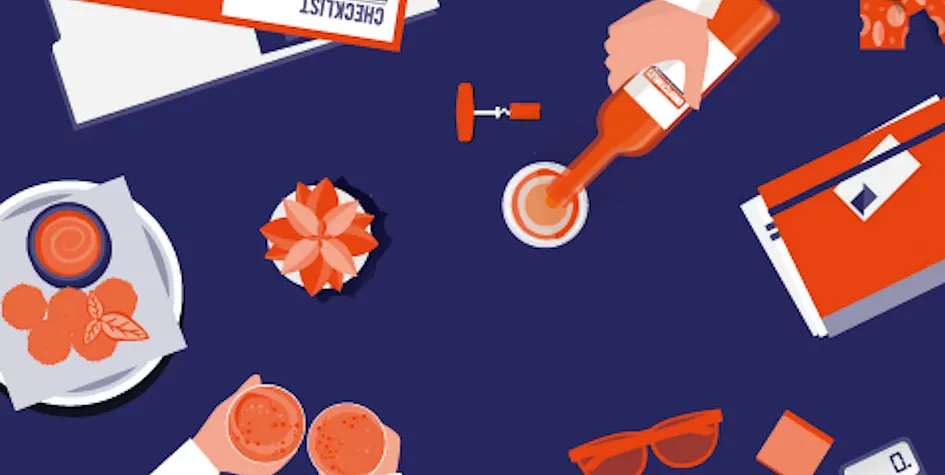Always up to date to find your dream job!
We only need a few personal details, thanks!
Moving to a new country can be both exciting and terrifying. You never fully realize how strongly tied you are to the culture of your home country until you move abroad and are confronted with a culture – and possibly another language – that is different from your own. Before you jump into the deep end, it is useful for you to know what is waiting for you on the other side. We have gathered 10 tips to prepare you and help you integrate into the Dutch society.
Unless you come from a country where they speak Dutch or English, it is first and foremost important to master the language. Having an understanding of the language makes it also easier to communicate with people around you. There are various websites and learning courses where you can start practicing Dutch. Duolingo is an example of a language app for people looking to learn a new language.
Most municipalities offer Dutch courses for non-Dutch speakers. Some even offer free courses subsidized by the government. Some libraries also have volunteers readily available to help you with your reading and speaking skills.
Are you anxious about communicating in a language that you don’t fully master? Our advice: just do it. Practice speaking the language as much as possible. Make mistakes, learn from them and remember, even Dutch people have difficulties with the language.
Each culture has its own value and belief system. What is normal in one culture can sometimes be offensive in another. Being open, respectful and learning to appreciate another’s culture makes it easier to understand different views. Freedom, democracy and equality are important in the Dutch culture. In addition, independence and the freedom to make ones’ own decision is highly important to most Dutch people.
Each country has its own eating habits. In France they love their baguettes, the Italian are known for their pasta and the English enjoy their fish and chips. Just like these and many other countries, the Dutch also have their own eating habits. When you think about the Netherlands you think about ‘stroopwafel’, liquorish and cheese. Especially cheese. Aside from these classics there are more eating habits that you would have to get accustomed to. For example, think about the love Dutch people have for French fries. There is something that makes it truly Dutch and that is when it is accompanied by a whole ton of mayonnaise. Oh, and don’t forget the patatje ‘oorlog’ or patatje ‘speciaal’. Literally translated it means ‘war’ fry and is also a favorite amongst the Dutch population.
During the winter season mashed-dishes are very popular. The ‘stamppot’ cannot be overlooked; a dish consisting of potatoes, endive, carrots, kale or pickled cabbage. This dish is the perfect way to brave the cold winter months.
Another unique phenomenon is the consumption of the herring. Herring stands can be found anywhere in the city or surrounding areas. The way to have at this delicacy is to hold the herring by the tail, dipping it in onions and lowering it into your mouth.
Holidays in the Netherlands can be divided into three categories: national holidays, generally recognized holidays and other holidays. Your collective agreement or employment contract states whether and on which public holidays you are free. Your contract (and CAO) also informs you about the amount of holiday leave that you are entitled to. The central government provides a list of official holidays each year.
The usual working hours are between 9 to 5. However, the flexibility depends on the company and sometimes your occupation. In most companies in the Netherlands the organizational structure is very flat. Meetings are also a very important part of the Dutch culture.
Tip: Prepare lots of snacks to survive these lengthy meetings. They will come in handy.
The public transportation in the Netherlands is usually arranged down to the smallest details and can be accessed with one simple card. Which makes it a joy to travel in the Netherlands, until it’s rush hour. Taking the public transportation turns into this dreadful idea. You will experience it all; the crying babies, teens speaking loud enough for people in the next cabin to hear what they did at last night’s soiree, and the packed busses or trams. If you are planning to travel to and from work by public transportation we advise you to plan your route ahead of time. This way you can also avoid the occasional delays. Use the 9292ov route planner or the NS app for detailed information about your trip.
The Netherlands is a true cycling nation. Almost everyone has a bicycle in the Netherlands and cycling is the most popular form of transportation. The Netherlands facilitates this with special roads (cycle paths) for the cycling traffic. There are even cycling classes, so no excuses here.
There you have it. Can you take it on?
Read more about the Dutch business culture
Read about the Dutch lunch
Read more about Getting around in the Netherlands
Would you like to receive our Undutchables Newsletter? In this newsletter we will give you guidance on working in the Netherlands and working with internationals, let you know about upcoming events and share interesting articles. And do you wish to stay up to date about our latest vacancies? Subscribe now to our job alert and you will receive the newest vacancies straight into your inbox.

We only need a few personal details, thanks!
